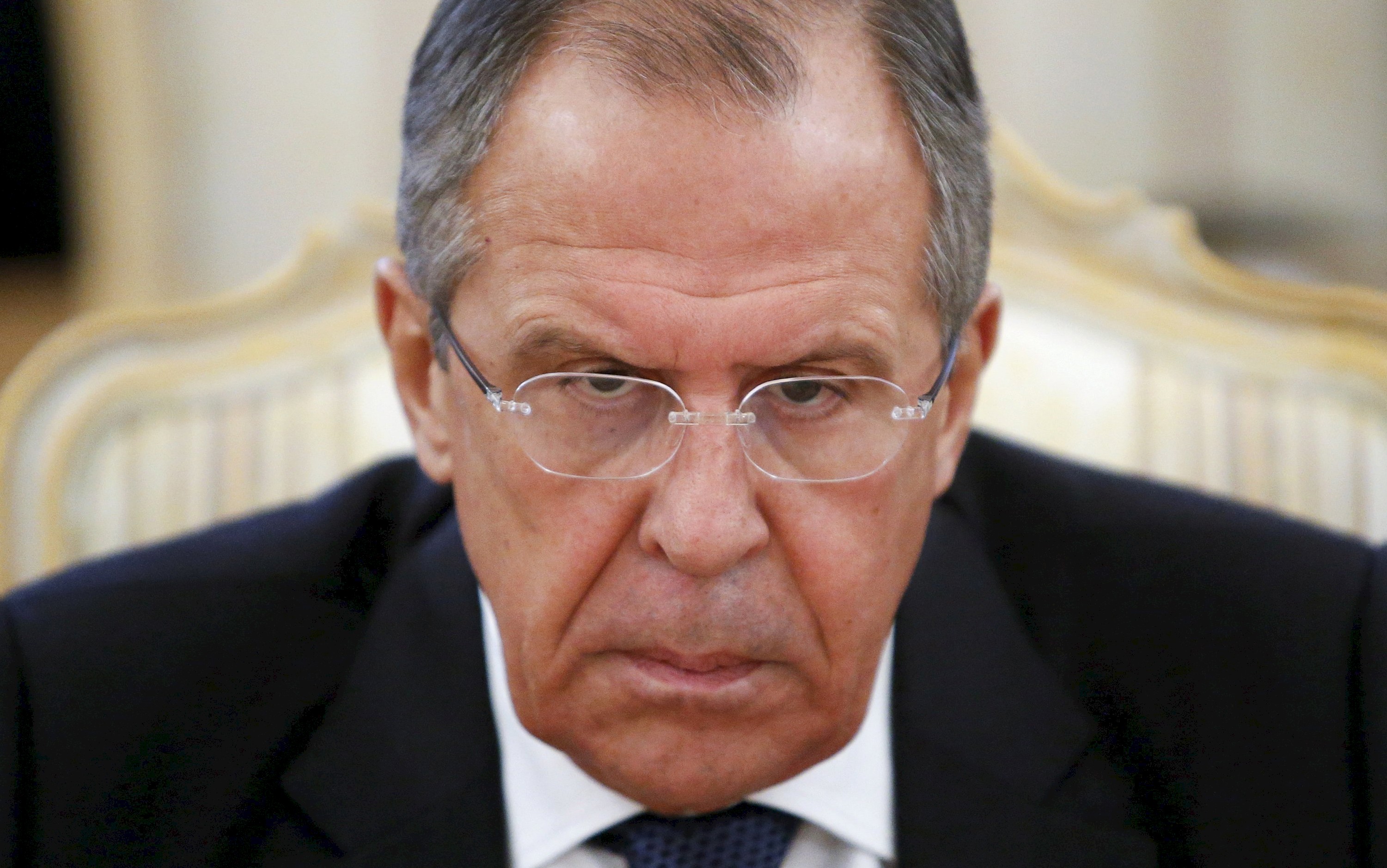On the eve of the negotiations with the US on the issue of Donbass, Sergey Lavrov outlined Russia's position on Ukraine. In fact, Moscow proposes the West ‘to close the Ukrainian project’ and return it to the place where it belongs historically, namely, to the Russian zone of influence. It's hard to avoid noticing the malice in the remark that otherwise, the Kremlin is prepared to wait and return to this conversation a few years later.
On Sunday, in an interview with one of the federal channels, the Russian Foreign Minister, Sergey Lavrov made a number of significant statements on a wide range of foreign policy issues. Among the most notable are those concerning the Ukrainian crisis.
The combat situation on the contact line in Donbass is known to remain very serious.
Moscow's official rhetoric on this issue is characterized by an increased hardness level, sometimes turning into a very ambiguous irony. It is sufficient to recall the recent comment by the press secretary of the Russian president that the Kremlin is not involved in ‘counting ammunition’ of the militia, and only hopes that ‘they will have enough ammunition to respond to aggressive actions of the Armed Forces of Ukraine’.
The key points of the position announced by the Russian Foreign Minister, are as follows.
Firstly, the imposition of full responsibility for the current aggravation of the hostilities on the Ukrainian side. At the same time, it is emphasized that the escalation was largely provoked by volunteer battalions which, in fact, are not subject to the Armed Forces of Ukraine.
Secondly, not only distanced but pointedly contemptuous attitude to the Kiev authorities, which resulted in a comment about the absence of Sergey Lavrov's intent to appeal to the conscience of his Ukrainian colleague, Pavel Klimkin (and other representatives of the government of Ukraine).
Thirdly, the removal of a large share of responsibility for what is happening, from the West. In particular, the Foreign Minister noted the objectivity and impartiality of the OSCE mission, which can no longer «blanch» the AFU and volunteer battalions. In fact, the Kremlin is consistently driving a wedge between Kiev and forces in the West, supporting it, by showing the latter the absolute hopelessness of the project and the resulting fact that leaving the game would be the most reasonable solution in this situation.
Fourthly, the return to the idea of decentralization of Ukraine as a method of resolving the situation. Curiously enough, speaking of that, Sergei Lavrov did not appeal to the Minsk Agreements providing a broad autonomy for the Republics, but to the proposals made in April 2014, which, among others, had been supported by Western countries.
At the same time Lavrov noted that while contacts with the new US administration had already begun, the officials of the State Department, with whom it would be possible to discuss the situation in Ukraine, had not yet been assigned.
In fact, in his statements the Russian Foreign Minister outlined Russia's position for future work with Washington on the Ukrainian theme (Lavrov said within the same interview that his talks on Donbass with the new head of the State Department, Rex Tillerson, were planned for the near future). It should be noted that this position is very tough and is reduced to a few basic points.
Firstly, Ukraine is a zone of Russian influence. Everyone else is invited to abandon the project which has demonstrated, in recent years, its futility, which just absorbs finances without bringing any benefits. In this case, Moscow is ready to ‘forgive and forget’ all the problems that had been caused to it on this occasion.
Secondly, Moscow will solve the Ukrainian problem as it sees it fit. The tool of the solution will be the decentralization. It is up to Russia to decide what it will end up with - the disintegration of Ukraine or rebuilding the state on new principles.
Thirdly: if the West (including the US) is not ready to accept the Russian proposals, Moscow is ready to wait a few more years while they continue their «race on a rake». That is the meaning of Lavrov’s completely transparent (and quite sarcastic) hint when he mentioned the discussion of spring 2014. Three years of tough confrontation and various provocations, and eventually all sides have returned to the original point.
Moscow has laid the cards on the table. Now, it’s Washington’s move.
Irina Alksnis
- ‘Putin, capture us at last!’
- Putin, Ukraine and What Americans Know
- UN covers up murder of OSCE monitor in Ukraine






